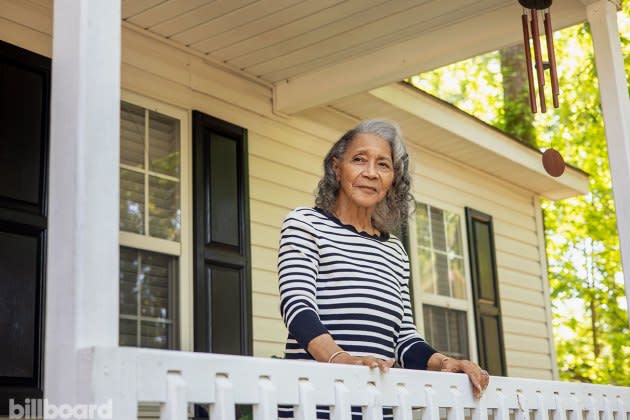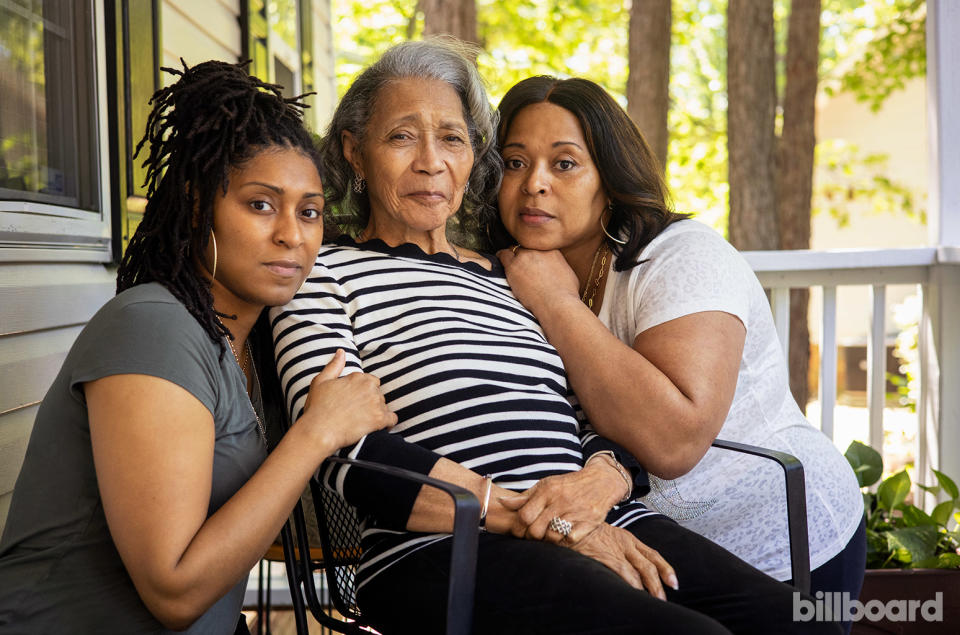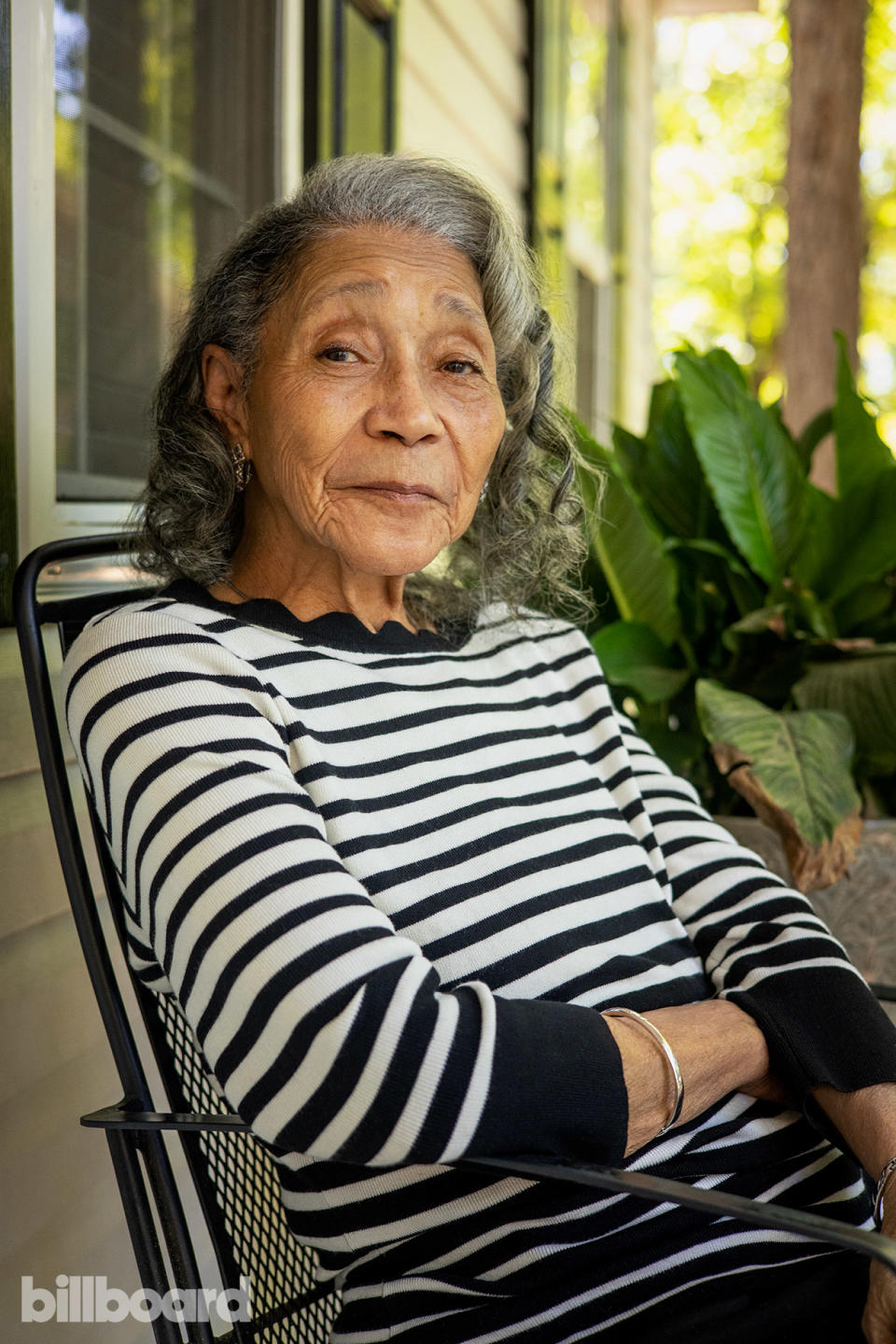Linda Martell Opens Up About Her ‘Cowboy Carter’ Spotlight — And Her Bittersweet Time In Nashville

Linda Martell’s granddaughter Marquia Thompson is running late to launch her 82-year-old grandmother’s Zoom interview with Billboard — but for a good reason.
In late March, Beyoncé featured Martell on two spoken-word segments on Cowboy Carter. Shortly after, the star posted a photo of herself wearing an official Martell T-shirt from the pioneering country artist’s website — and today, Thompson needed to run by the post office to mail some of the nearly 600 orders she has received since. Martell’s merchandise sales aren’t all that have been soaring. Her catalog streams also ballooned from a little under 5,000 from March 22 to 24 to 61,000 from March 29 to 31, according to Luminate — an 1,100% surge immediately following the album’s March 29 release.
More from Billboard
The attention is long overdue. In 1969, Martell became the first Black woman to play the Grand Ole Opry. At the time, she didn’t know she was making history, though she was very aware that there were no other “Black guys or Black girls there” onstage or off, she says. She also didn’t know that she would receive two standing ovations. “I was surprised,” she says with a laugh.
Her breakthrough single, “Color Him Father,” peaked at No. 22 in September 1969 on the Hot Country Songs chart; it remained the highest-charting track on the tally by a Black woman for more than 50 years until Beyoncé’s “Texas Hold ’Em” reached No. 1 in February. And yet, until Beyoncé helped shine a light on them, Martell’s accomplishments had largely faded into obscurity.
“When I was actively pursuing country music 14 years ago, I Googled ‘Black female country singers’ and Linda Martell’s name came up,” says Mickey Guyton, who wasn’t previously aware of Martell. “She is truly the reason why I had the courage to sing country music.”
Martell released only one album, 1970’s Color Me Country, but it was a beauty. Her voice was clear and resonant with plenty of twang reflecting her South Carolina roots on the Shelby Singleton-produced set of traditional-leaning tunes. In addition to “Color Him Father,” two other tracks charted in the top 60. In its review at the time, Billboard wrote, “Linda impresses as a female Charley Pride. She has a terrific style and a true feeling for a country lyric.”

But by 1974, fed up with label clashes, a legal battle with her manager and the ongoing racism she endured, Martell left Nashville.
“Linda Martell has always resonated with me personally because her story is so many of our stories, which is why I named my show after her,” says artist Rissi Palmer, who hosts Apple Music’s influential Color Me Country Radio program. “She didn’t ask for all the politics — she just wanted to sing. Period. I admire her grace under pressure, focus to stay the course and the way she advocated for herself against a manager and record producer who were interested in gimmicks and not creating a lasting career for her.”
More than a half-century later, Martell, who lives with her daughter and son-in-law outside of Columbia, S.C., looks back on those days as bittersweet. Sitting in her favorite spot — a gray reclining lounger in the living room — and wrapped in a black and red blanket, she is quick to respond and even quicker to laugh and smile, despite some of the painful memories that clearly still sting. She relies on Thompson, who serves as her de facto manager, to fill in some details.
Though she started out performing pop and R&B, Martell grew up listening to country music and had a natural affinity for its cadences. Her sharecropper father sang country songs around their Leesville, S.C., house, and the country station came in loudest on the family radio, around which they would listen to Grand Ole Opry broadcasts on Saturday nights.
Her future manager heard Martell sing a handful of country songs when she performed at an Air Force base, and she moved to Nashville, where producer Singleton signed her. Singing songs with good stories appealed to her, and Martell cut Color Me Country in one day. “That was easy,” she says. “I was singing always already, so it didn’t bother me. I had fun. It was great.”
During that period, there were moments both good and bad. But mainly, Martell recalls, she felt lonely. “Black artists didn’t sing that kind of song,” she says of country music. Though she says she didn’t have issues with any of her fellow artists, no other acts, white or Black, encouraged her, with the exception of multi-instrumentalist and Hee Haw host Roy Clark. “He’d make you feel at home,” she remembers of her appearance on the variety show. “He would sit beside me and talk. It felt very natural.”
It was worse on the often-hostile road. Her late brother, Lee, was in her band and provided company, but the heckling from some audiences was painful. “Most of the time, you really didn’t pay attention because if you do, oh, it hurt,” she says. “But we heard it. Me and my brother wouldn’t [respond]. He’d say, ‘Well, they’re ignorant.’ We came to work, and we knew what to do and what to say. That’s all.”
After her first manager sued her (over his commission) and Singleton and his label switched their focus to Jeannie C. Riley (who had a huge hit with “Harper Valley, PTA”) but tried to prevent Martell from recording elsewhere, she eventually got “tired of it” and left Nashville.
Martell revisited R&B music and lived in California, Florida and the Bronx, where she and her then-boyfriend owned a record store. In the 1990s, she returned to South Carolina, where she drove a school bus and then worked in a classroom until she retired in her 60s. She now enjoys spending time with her five children, 13 grandchildren and 16 great-grandchildren.
As Beyoncé worked on Cowboy Carter, her team asked Thompson if Martell would be interested in appearing on it, then presented Martell with the script for her spoken interludes. Martell was already a big Beyoncé fan. “One thing my grandmother will notice is a young woman who can sing,” Thompson says. “I’m very, very glad” to be on the album, Martell says, adding that she appreciates the attention Beyoncé has brought to her music.

But Martell had already been reflecting on her story before Beyoncé came calling. In 2020, Thompson began work on Bad Case of the Country Blues: The Linda Martell Story, a documentary about her grandmother featuring interviews with Palmer, songwriter--author Alice Randall and others. She plans to screen the nearly finished film locally this fall before a wider release. Thompson launched a GoFundMe to cover the final touches and hopefully release the doc independently in order to retain ownership.
Despite all the hardships and a career cut short through no fault of her own, Martell’s response is swift when asked whether she’s glad she made country music in the first place: She quickly nods yes. “It’s very nice,” she says. “I wouldn’t change nothing.”
This story originally appeared in the May 11, 2024, issue of Billboard.
Best of Billboard
Solve the daily Crossword

